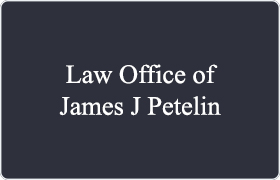Auburn Misdemeanor Lawyer, California, page 2
Sponsored Law Firm
-
 x
x

Click For More Info:
-
Law Office of James J Petelin
1550 Humboldt Road, Suite 4 Chico, CA 95928» view mapDivorce & Family Law Effective, Client-Focused Representation
James Petelin is a practicing attorney in the state of California who focuses on Family Law.
800-943-9701
Gregory Alexander Nelson
Products Liability, Insurance, Misdemeanor, State Government, Agriculture
Status: In Good Standing *Status is reviewed annually. For latest information visit here
Sheri Lynn Leonard
Misdemeanor, Employment, Whistleblower, Employee Rights
Status: In Good Standing *Status is reviewed annually. For latest information visit here Licensed: 31 Years
Tiffani Suzanne Sharp
Misdemeanor, Medicare & Medicaid, Immigration
Status: In Good Standing *Status is reviewed annually. For latest information visit here Licensed: 23 Years
Matthew Brian Duarte
Business, Misdemeanor, Employment, State Government, Motor Vehicle
Status: In Good Standing *Status is reviewed annually. For latest information visit here
Douglas Stanford Cumming
Health Care, Misdemeanor
Status: In Good Standing *Status is reviewed annually. For latest information visit here Licensed: 46 Years
Steven R Swenson
Misdemeanor, Family Law
Status: In Good Standing *Status is reviewed annually. For latest information visit here Licensed: 29 Years
Hang Samantha Nguyen
Defect and Lemon Law, Misdemeanor
Status: In Good Standing *Status is reviewed annually. For latest information visit here Licensed: 14 Years
Jason Adrian Manning
Misdemeanor, Felony, DUI-DWI, Criminal
Status: In Good Standing *Status is reviewed annually. For latest information visit here Licensed: 8 Years
Joel Daniel Rapaport
Medical Malpractice, Civil Rights, Misdemeanor, Employee Rights, Trusts
Status: In Good Standing *Status is reviewed annually. For latest information visit here Licensed: 18 Years
Michael Lawrence Chastaine
Misdemeanor, Criminal
Status: In Good Standing *Status is reviewed annually. For latest information visit here Licensed: 40 Years
 James Petelin Chico, CA
James Petelin Chico, CA AboutLaw Office of James J Petelin
AboutLaw Office of James J Petelin Practice AreasExpertise
Practice AreasExpertise